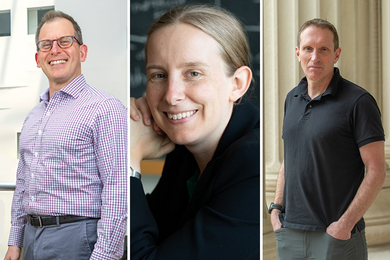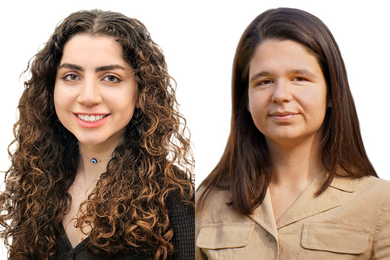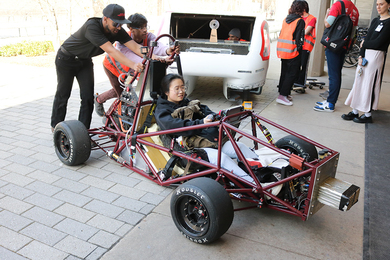��������� Professor of Economics Abhijit Banerjee, Professor of the History and Philosophy of Science Evelyn Fox Kellerand Professor of Physics Rainer Weiss are among the 182 artists, scholars and scientists to win 2000 Guggenheim Fellowships totaling $6.35 million.
Guggenheim Fellows, who work in all fields of the arts, sciences and humanities, are appointed "on the basis of unusually distinguished achievement in the past and exceptional promise for future accomplishment." This year's recipients were chosen from more than 2,900 applicants. Over its 75-year history, the John Simon Guggenheim Memorial Foundation has granted nearly $192 million in Fellowships.
According to the John Simon Guggenheim Memorial Foundation, Professor Banerjee will use his award for studying the new economics of poverty. Professor Keller will study explanation in developmental biology, while Professor Weiss will research gravitational waves of astrophysical origin.
������
��������� Research into environmentally benign semiconductor processing techniques has won MIT researchers and colleagues the 1999 Excellence Award for Research in Manufacturing and Environment, Safety and Health. The award is sponsored by the Semiconductor Research Corp. (SRC), the Semiconductor Safety Association, and International SEMATECH. The $5,000 award, split between two sets of winners, was presented today, April 26, at the annual conference of the SSA.
The winning submission involving MIT researchers was "Environmentally Benign Lithography for Semiconductor Manufacturing" by Professor Karen K. Gleason and graduate student Hilton G. Pryce Lewis of chemical engineering, and Professor Christopher Ober and Gina Weibel of Cornell University. Researchers from the Interuniversity Microelectronics Centre in Belgium also won for "A Novel Resist and Post-Etch Residue Removal Process based on Ozonated Chemistries."
The MIT/Cornell work describes a process for high-performance and environmentally benign patterning of integrated circuits through integration of new processes and materials into a manufacturable scheme. "This work represents a new, general and sustainable process for directly defining smaller integrated circuit features, while reducing or eliminating waste," said Dr. Dan Herr of the SRC.
A version of this article appeared in MIT Tech Talk on April 26, 2000.





